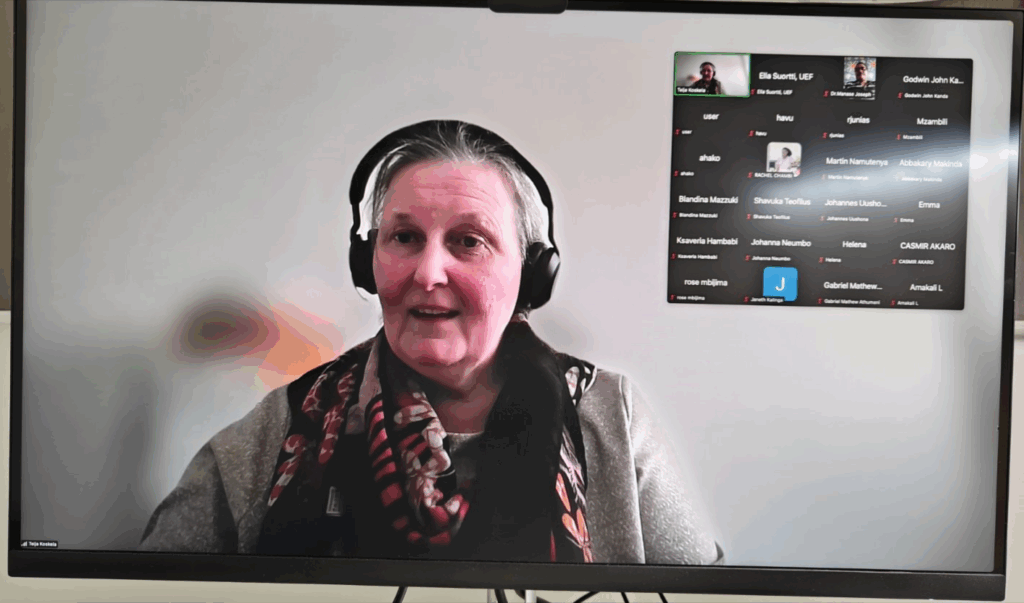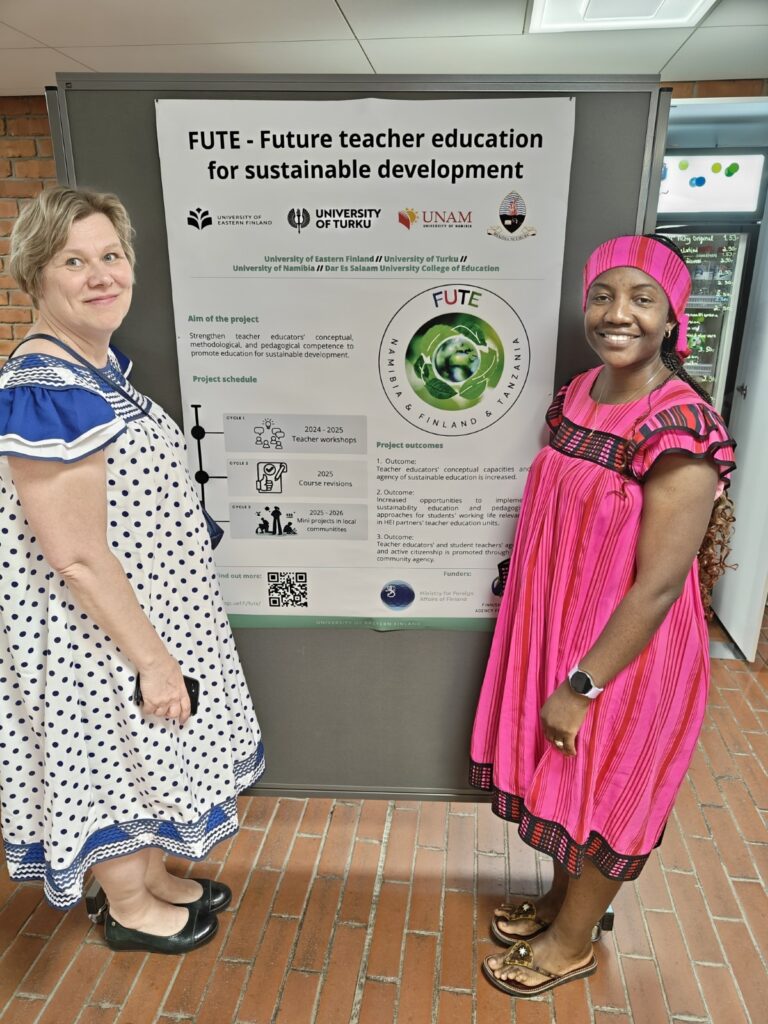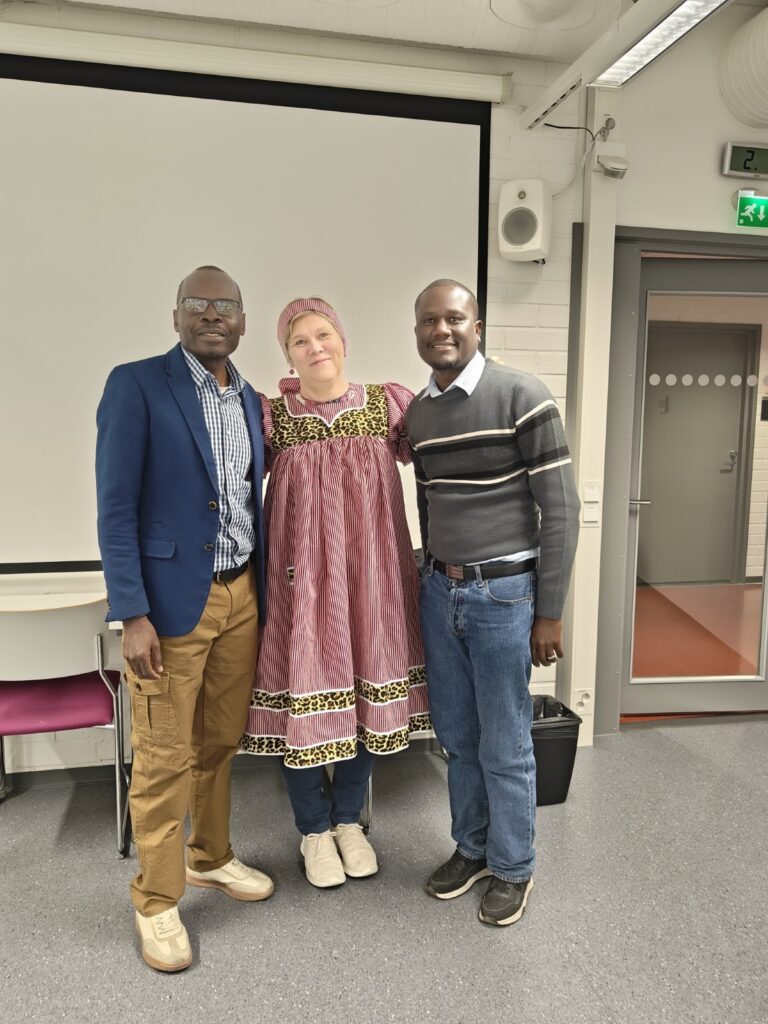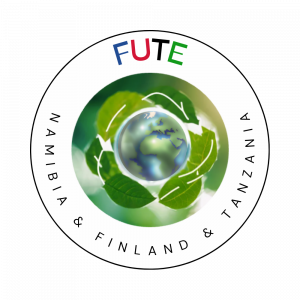Reflecting on the first year of the FUTE team
by Ella Suortti & Sari Havu-Nuutinen
In February 2024, we launched our FUTE (Future Teacher Education for Sustainable Development) project with an inspiring online opening ceremony that set the tone for a transformative year. The event featured distinguished guests, and the theme of the webinar “Building Global Education with a Local Perspective” became the guiding principle for all our activities throughout the year.
Following the launch, we entered the inception phase, laying the strong foundation for a collaborative and inclusive approach. Project leaders and coordinators met at DUCE in Tanzania. This groundwork was crucial, and later, we received heartfelt appreciation from our partners and funder for the strong collaboration we demonstrated.

Planning our activities at DUCE in March 2024
Our main activity for the academic year 2024–2025 focused on training teacher educators from the University of Eastern Finland, the University of Turku, the University of Namibia, and the Dar es Salaam University College of Education. We conducted four workshops, comprising a total of 12 sessions. These workshops served as dynamic spaces for dialogue and learning, led by key experts involved in the project. The workshop themes included:
- Conceptualizing Education for Sustainable Development
- Research-Based Orientation Towards Teacher Education
- Experiential Learning in Education for Sustainable Development: Inquiry-Based and Collaborative Learning
- Crafts, Craft Education, and Sustainability
- Sustainability in Food and Nutrition Systems
- Digital Learning and Sustainable Teacher Education
- Social Sustainability and Agency
- Perspectives on Assessment
- Partnerships with Local NGOs

Key expert Teija Koskela from UTU leading the workshop 4
Our project thrives on the strength of its working groups. These groups are intentionally diverse, ensuring representation across gender, nationality, and professional backgrounds. Every member of the FUTE team has played an equal role in shaping the project by organizing workshops, developing learning materials, and embedding both local and global perspectives into our sustainability education efforts. Throughout the year, we have remained mindful of cross-cutting issues such as equity, inclusion, and environmental sustainability. These considerations are not mere add-ons; they are integral to the project’s design and implementation, influencing every decision and activity.

We participated in UEF Africa Day both 2024 and 2025
How we have succeeded?
Key experts of the project have learned a lot about international communication, technical solutions in blended learning, in-service teacher training, and differences of the teacher education in each country. The year has been productive, but also busy. The role of the project coordinators has been essential for our success.
Comments from the participants:
What did you learn?
- ’’I also learn how to structure and align my assessment activities to sustainability.’’
- ’’I learnt much about the philosophy of sustainable development and the integration thereof in education.’’
- ’’I learn ESD competencies/skills such as critical thinking, collaborative, problem solving etc.’’
What did you see as the best parts of the workshops?
- ’’Sharing of experiences from different countries.’’
- ’’It was so good to learn the use of different gadgets/tools for teaching.’’
- ’’It was very interesting because it forces an educator to be innovative and link your subject content to the real life.’
We also received good feedback from the Finnish National Agency for Education (EDUFI). They suggested that next year we focus on finding new ways to strengthen digital infrastructure to ensure technical reliability in our online sessions and to expand our outreach efforts to increase engagement and knowledge sharing beyond project partners.

Project partners from Namibia visited in UEF Joensuu campus
Looking ahead
As we reflect on a successful first year, we are energized by the progress made and the partnerships formed. Stay connected with us as we move into the next phase of our project—starting the teacher education course revisions and implementing sustainable mini projects in each partner country.
